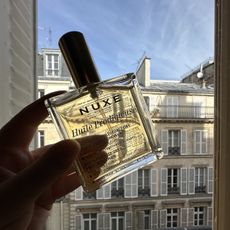From Ghosting to Breadcrumbing: The Psychology of Labeling Bad Dating Behavior


"He's breadcrumbing you," my friend insisted as we pored over the likes on my latest Instagram post, the most recent of which came courtesy of my ex. "No, no," said our other lunch companion. "That's orbiting. Or is it haunting?"
On any other occasion, I might have found this deep dive into the semantics of my misery wildly annoying, but in the wake of a breakup that had left me with more questions than answers, this latest reemergence was infuriating—and being able to classify this very specific brand of behavior felt something like a life raft.
Throughout my dating experiences in an age when social media has made us both more and less connected than ever, I've wondered whether the rise of our relevant terminology—ghosting and all the offshoots that have followed—is bad for us; whether it normalizes shitty behavior with pithy, meme-able terminology. But that conversation with my friends a couple of years ago was enough to inspire a shift in mindset. I left our lunch feeling better, and I realized it probably wasn't a coincidence.
"It's human nature—in virtually every language, by the way—that we come up with euphemisms to soften uncomfortable, taboo, or otherwise unpleasant experiences," says writer and linguist Amanda Montell, whose forthcoming book Wordslut explores the relationship between language and gender. But she notes that the fact that these words are more playful in nature is exactly what helps us cope with the experience at hand. "These terms legitimize the experience," she says. "Before ghosting, there was no succinct label that we assigned to that. Now it's easier to call out."
That we do—in memes, in text threads, in point-counterpoint think pieces. Defining these terms is just one part of it: an almost-explanation for behavior that feels, in the moment, absolutely inexplicable. But the viral appeal of these words also creates a sense of community around them. Ghosting, for example, feels a lot less lonely when you know that thousands of Instagram users have gone through the same thing.

It's even kind of essential in the context of a digital landscape that we're collectively just beginning to understand, since so many of these terms address the brave new world of dating in the age of social media. Orbiting, for example, is when someone who has otherwise ghosted you still remains a passive part of your life via your digital world. They haven't answered your text in weeks, but they still view your Story on the regular and even lob an occasional like.
Breadcrumbing dives even deeper into mindfuckery: It's orbiting but amplified to the point that you wonder if there's still a chance this person might be into you. This person sends you a text here and there (usually late on a Friday night, in my experience), "checks in" to "say hi" on social media, but flakes when it comes down to making concrete plans. A writer at Bustle once described breadcrumbing as "ghosting's sadistic cousin," which I think sums it up beautifully.
There's also haunting, benching, and the slow fade, along with at least half a dozen more lowbrow-brilliant colloquialisms that sum up just about every niche dating experience you've ever encountered (and then some). My personal favorite—in terminology, never in practice—is Draking: posting moody lyrics and "cryptic" inspirational quotes in lieu of directly addressing a tough break.
In truth, they're all kind of synonyms for the same thing: the inevitably messy aftermath of disconnecting from someone in our highly connected world. Apps (and social media, in general) have gamified the dating experience to the point of making people seem more disposable than ever. This now goes beyond the simple dismissal of swiping left; there's general agreement among my friends that ghosting isn't even necessarily rude after one date (and certainly not if you haven't met the person IRL yet).
That's all complicated by social media, which can muddy even the cleanest of breaks. You're not just making the decision to separate in real life; you have to decide whether or not to part ways digitally as well, which can seem overdramatic if things ended somewhat amicably. And even if you choose to unfollow that person, they might not return the favor—haunting you in the form of peeping your Instagram Story, for example.
"Today, most dating initiates online, and for the first few days or even weeks prior to the first date, you are just talking through text," says Sanam Hafeez, neuropsychologist and teaching faculty at Columbia University. "This creates a detachment and a culture in which we feel no responsibility for someone else's confusion at being ghosted or breadcrumbed."
And that's just it: If you're on the receiving end of this behavior, it's incredibly confusing. Breakups, no matter how casual, are emotionally charged. When our egos are bruised, it's too easy to see a passing "like" or even someone checking our Instagram Story as evidence that our narrative together isn't necessarily over, that maybe they really are into us, that we are enough. It's self-preservation posing as hope.
Assigning labels to these behaviors brings rational thought back into focus by reminding us exactly how widespread they are and that, most likely, your ex is not the exception to the rule. What would it be like, for example, to consider that they viewed your Story because they were bored? Or that even if they're liking your photo to stay on your radar, the fact that they're too cowardly to actually communicate with you like an adult kind of says it all? Using words like breadcrumbing and orbiting is incredibly freeing because it affords us the perspective to see these people for what they really are: incompatible with our needs.
Next up: Is there any truth to "opposites attract"?
Disclaimer
This article is provided for informational purposes only and is not intended to be used in the place of advice of your physician or other medical professionals. You should always consult with your doctor or healthcare provider first with any health-related questions.

